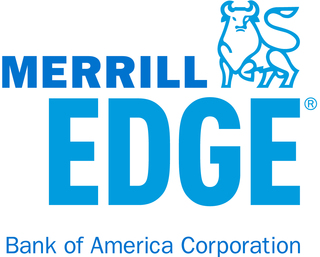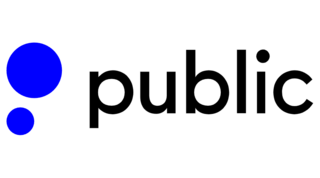Best Banks for Digital Investing for 2026
Banks traditionally offer a variety of products that often include high-yield savings accounts, checking accounts, money market accounts, CDs and loans. Today, it's increasingly common for these financial institutions to also offer digital investing platforms and — in some cases — investing apps.
In doing so, they provide customers with the opportunity to centralize all of their finances in one place with access to a user interface they are familiar with while growing their investments alongside their savings.
But like any banking product, there are pros and cons to each digital investing platform. For example, not all of them offer fractional shares. Some offer free investing advice while others promote sign-up bonuses. And some make more sense for new investors, students or seniors.
Money used those criteria (and more) to compare the digital investment services of dozens of banks to determine the clear-cut winners for a handful of categories. Here are the best banks for digital investing for 2026:
- Wells Fargo - Best Overall
- Ally - Best for Robo-Investing
- Chase - Best for Seniors
- Merrill Edge from Bank of America - Best for Students
- Schwab - Best for Investment Advice
Figures are subject to change. All information provided here is accurate as of Oct. 14, 2025.
Wells Fargo's WellsTrade offers a simple user interface and fractional shares, permitting new investors to get acclimated with the investment landscape while allowing seasoned investors plentiful resources on the platform. With 70 million Americans already using Wells Fargo for their banking needs, WellsTrade offers a way to centralize banking and investing in one place through the financial institution's digital presence. The platform offers fractional shares beginning at a $10, removing a barrier for new investors to purchase stocks trading at high share prices.
WellsTrade doesn't offer futures trading, cryptocurrencies or over-the-counter stocks (OTC, or "penny stocks"). However, its easy-to-use app and desktop platforms are simple for newcomers, and its offerings for fixed-income instruments (e.g., Treasurys, municipal and CDs) and mutual funds (10,000 in total) provide experienced investors with a large sampling of asset classes. Additionally, WellsTrade doesn't charge any stock and ETF trading fees, nor does it impose any account minimums.
- Offers fractional shares
- No stock or ETF trading fees or account minimums
- Physical branch locations
- Termination and outgoing fees
- Lacks premium features
- High mutual fund fees
Ally Bank’s investing platform, Alley Invest, offers its Robo Portfolio account with a starting minimum balance requirement of $100. There is no minimum balance requirement for the bank's Self-Directed Trading accounts. The Robo Portfolio allows passive investors to take advantage of Ally Invest's proprietary blend of diversified exchange-traded funds.
The brokerage's robo-advisor tool combines human design with digital automation, with numerous custom-built portfolios, each of which cater to different investment objectives. Once users choose which ones is most suitable for them, the process is automated from there on out. The platform's unique algorithms automatically track and manage users' portfolios, rebalancing when necessary.
For investors with at least $100,000 in their accounts, Ally offers its Personal Advice plan, which assigns you one dedicated financial advisor who will construct a personalized plan based not only on your investments, but on all of your finances. Ally Invest charges a blended annual advisory fee for these services, which is no more than 0.85%.
- Intuitive platform
- Offers robo portfolios
- No stock or ETF trading fees or account minimums
- No fractional shares
- No physical locations
- Charges closing and transfer fees for IRAs
Chase offers a blend of investment vehicles that are ideal for meeting the needs of retirees and those nearing retirement.
While many platforms offer a mix of asset classes that can help seniors make the most of their investment portfolios, Chase features a wealth of fixed income instruments — like bonds and annuities — in addition to the usual offerings of stocks, ETFs and mutual funds.
The bank's investing platform also includes tools such as six retirement calculators, various retirement guides and tutorials for rollovers and transfers. Chase offers unlimited $0 commission online trades as well as one-on-one advisory services through J.P. Morgan Advisors.
J.P. Morgan, which merged with Chase Bank in 2000, monitors the annuity landscape and track trends within the industry to provide Chase members competitive annuity products, and the Chase website offers an annuity calculator to help you determine how much fixed income you can expect from certain products.
- Numerous fixed income instruments
- No stock or ETF trading fees or account minimums
- Physical branch locations
- Transfer, termination and annual account fees
- Doesn’t offer as much third-party research as other platforms
Merrill Edge offers an award-winning platform that is easily navigable and welcome to new investors.
Merrill Edge is an investing platform offered by Bank of America. It allows unlimited, no-cost stock and ETF trades, and customers can get in-person customer support at its 3,700 branch locations.
The platform's self-directed investment account was awarded No. 1 Bank Brokerage in the 2025 StockBrokers.com Online Broker Review, which evaluated 17 online brokerages using 181 variables across eight categories. The award recognized that Merrill Edge's "Stock Story" and "Portfolio Story" features show an "impressive ability to turn raw data into engaging narratives that empower long-term investors to make informed decisions with ease." Other criteria included satisfying user intent, design, customer support, platform responsiveness, convenience, workflow, education and transparency, all of which benefit young investors.
- Top-rated client experience
- Physical branch locations
- Access to Bank of America’s Global Research for market insight and investment opportunities
- No stock or ETF trading fees or account minimums
- $1,000 cash reward requires $250,000 new asset balance
- Minimum investment requirements of $1,000 to $50,000 for Merrill Guided Investing
- Annual program fee for Merrill Guided Investing of 0.45% and 0.85%
Schwab doesn't charge investors to work with a financial consultant, and every member can receive a personalized, complimentary financial plan.
While Schwab doesn't charge any account fees and doesn't have a minimum deposit requirement for its investment accounts, what stands out the most is how accessible the bank makes financial planning for its customers, and the resources it offers at no charge.
According to its website, "every client can get a complimentary financial plan to help reach their retirement goals," and this plan doesn't cost a thing. Beyond the personalized plan, Schwab also offers no-cost tailored product recommendations and direct access to its specialists via phone, chat, video or in-person at any of the bank branch locations, which number more than 400 in the U.S.
Schwab's financial consultants can provide professional guidance to help you stay on track with your financial goals, and they cover three core areas: financial planning (e.g., retirement planning, estate, tax, etc.), investment management (e.g., specialized strategies for specific portfolio needs) and dedicated specialists (e.g., fixed income, trading, insurance).
- No stock or ETF trading fees or account minimums
- Offer fractional shares
- Physical branch locations
- Charges a transfer out fee
- Fractional shares limited to companies in the S&P 500
How We Chose Money’s Best Banks for Digital Investing
Our selections for the best banks for digital investing involved consideration of both brick-and-mortar and online-only institutions offering investment platforms in addition to their traditional banking products. To determine the winners, we focused primarily on the institution’s basic platform functionalities, associated fees and minimum balance requirements, asset class offerings, sign-up bonuses, physical locations, access to financial consultants, availability of research and trading tools and more. The Money editorial team also reviewed each institutions standing with accrediting bodies, the Better Business Bureau and the Business Consumer Alliance.
When possible, we considered customer service rankings from the J.D. Power 2025 U.S. Retail Banking Advice Satisfaction Study. Money’s editorial team collected and analyzed the data in August and September 2025. All figures and bonuses quoted are valid as of Oct. 14, 2025, and are subject to change at any time.
You can read our full methodology here.


















